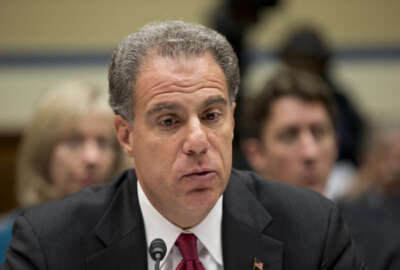
Privatizing The IRS, are you next?
There are at least two schools of thought about repeated congressional efforts to privatize the IRS, says Senior Correspondent Mike Causey. The government could...
People who repeatedly shoot themselves in the foot — or other sensitive parts of the anatomy — are either very unlucky or uncoordinated…or they own shares in a medical clinic. For whatever reason, they keep doing the same thing, then try fixing it, then do it again.
Take Congress, please.
The action de jour begs the question as to whether Congress (especially the House side) either has a really serious case of short-attention span, or whether it is fiendishly clever in pursuit of a goal. Like gutting the Internal Revenue Service.
The IRS is not most citizens’ favorite federal function. Not by a long shot. Given the choices of taxes or no taxes, most of us would be happy to see them go. That would also eliminate dumb federal programs which is anything we don’t personally like or benefit from.
The only thing most taxpayers dislike more than paying taxes if having to pay them while others don’t. The deadbeats who don’t pay their fair share. Or somethings anything.
Knowing that deadbeats are unpopular, the House of Representatives, again, is pushing a plan that would, again, give private contractors the authority, and highly confidential data to collect taxes.
In many cases the taxes are uncollected because Congress has squeezed IRS’ budget to the point where it can’t collect from some people. The deadbeats include some very rich people but the majority, according to the National Taxpayer Advocate, are low-income people.
The private collection agents (PCAs) can be tough. Very tough. In some some cases, maybe most, they are dealing with deadbeats of the worst kind. Getting them to pay a just debt (for a cut of whatever is collected) sometimes requires tough tactics. Late night calls. Calls at work. Threats. So-called meaner-than-a-junkyard-dog tactics. They can and do things that IRS agents and enforcement officers would be reprimanded, maybe even fired, for. If you doubt it, check with the Federal Trade Commission which — at the same time — is planning a crackdown against overzealous PCAs.
There are at least two schools of thought about repeated congressional efforts to privatize the IRS.
One is that it is a good idea. It makes sense. The government could save a lot of money if it could get rid of 90,000 IRS workers and let the private sector do it, for a fee. A flat tax would also make life simpler.
The other is that some members of Congress are trying to make the IRS fail. They are destroying the village to save it, sort of. If they squeeze it enough it will fall further behind in collections, and complete the self-fulfilling prophecy.
A third option is that the IRS has done some, uh, not so bright things. We may never know the full details or motives behind the Lois Lerner tax exemption deal. Was it local — confined to some Cincinnati-Covington officials —and harmless? Or was it an outrageous attack on conservative groups directed right out of Washington?
Although there is probably little IRS management could have done to soothe Republican House members, it’s no-harm-no-foul attitude didn’t cover it with glory.
Nobody (or hardly anybody) likes paying taxes. But it’s part of the deal. And one way to keep out of jail.
People who get behind (honestly or otherwise) are likely to get more sympathy from the IRS than from a private debt collector.
Nearly Useless Factoid
By Sam Ufret
There are no clocks in Las Vegas gambling casinos so people are less likely to walk away from tables if they realize how long they’ve been there. Most also have policies telling their table dealers not to wear watches in case a patron asks for the time.
Copyright © 2025 Federal News Network. All rights reserved. This website is not intended for users located within the European Economic Area.
Mike Causey is senior correspondent for Federal News Network and writes his daily Federal Report column on federal employees’ pay, benefits and retirement.
Follow @mcauseyWFED
More from Federal News Radio:





